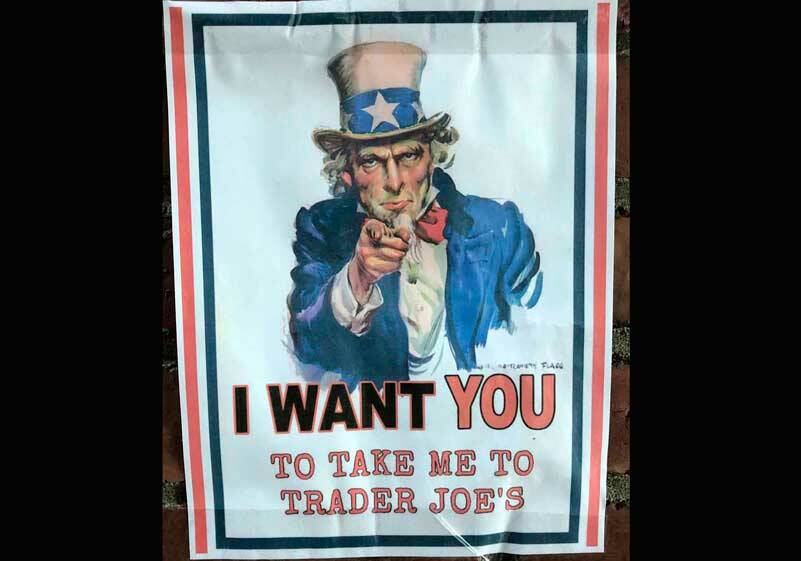By Morf Morford
Tacoma Daily Index
The key insight of Adam Smith’s Wealth of Nations is misleadingly simple: if an exchange between two parties is voluntary, it will not take place unless both believe they will benefit from it. Most economic fallacies derive from the neglect of this simple insight, from the tendency to assume that there is a fixed pie, that one party can gain only at the expense of another.– Milton Friedman
Above, beyond and even below our current national climate of divisiveness is a thick, seemingly impermeable layer of distrust.
Supporters of both political parties – or even neither one – share one core belief; no one is telling us the truth and everyone wants to take advantage of us.
To put it mildly, this is no way to run a country. Or an economy. Or a business. Or a family.
In any contract, implied or in print, trust is essential.
Workers need to be paid fairly. Personal space and private lives need to be respected. Products should live up to their descriptions. Politicians should live up to their promises – and live by the laws and standards they write and advocate for everyone else.
For example, if the minimum wage is adequate, maybe that’s what they should get paid.
A “free market” after all, only works if everyone plays by the same rules.
And the rules, in any context, from zoning to food purity or interest rates, should be clear and simple enough for anyone to understand and follow.
Rules and laws should be clear and fair – and, especially in a free market economy, advantageous to all.
As Milton Friedman put it, every economic exchange should leave both parties satisfied and willing, if not eager, to do business again.
How many times have you purchased something or maybe eaten at a restaurant and thought, “I’ll never go there again!”? According to one study, 91% of us stand by that decision; we never go back.
A few times I’ve given a business a “second chance”, a chance to win me back.
Some do.
But most don’t.
That bad service or unreliable product was not a fluke or a mistake, it was who they are.
And I, like most people tell everyone I know to avoid that place.
Statistically most of us tell nine to fifteen others about our bad experience.
And some of us even post a negative review online.
Oddly enough, only one in ten of us will post a positive review.
There is a basic reason for this; rage or feeling cheated is a far more powerful, enduring and raw experience than being satisfied.
Politicians have used this more and more lately. If they can generate negative feelings about a particular person or issue, it doesn’t matter if the claims are later proven false.
The emotional association and linkage has been made – and won’t be broken.
It’s the same with any business.
Whether positive or negative, once a powerful association has been made, it will rarely be changed.
I know people who love – or hate – Walmart or McDonald’s.
It almost doesn’t matter what either of those business does. Those customers won’t change their opinions. Or their shopping habits.
I know many people with the same attitude toward political parties. Or religion.
Their “position” is “right” – the other party or religion is “wrong” – even evil.
Again, this is no way to run a country. Or an economy. Or a business. Or a family.
There are many business I do not support.
For the vast majority, I don’t have a reason.
Their product or service simply does not suit or apply to me.
There are other businesses I trust implicitly.
Nordstrom, for example, is one of those few old-school businesses whose primary product is not what is on their shelves or on display; their primary product is customer service and satisfaction.
They know that a customer won is never a single customer.
A reliable customer is a customer for life. Or even for generations.
A discount or a “good deal” may attract a customer once or twice, but a customer for life is worth any temporary loss.
Product quality, customer service, politicians that live up to their promises, political parties that work for the good of all, is any of that too much to ask?
Believe it or not, it isn’t. Those simple (but not always easy) and basic principles are the foundations of any durable economy or society.
No company should be allowed to leave a toxic waste site for someone else to clean up.
No business should be allowed to cheat its customers or shareholders.
Any and every business should survive – or thrive – on its merits, not by its ability to cheat customers or skate through legal loopholes.
And any business that offers a breakthrough, a new and better way of doing something should be subsidized (if anyone should) at least at the beginning.
If an established business or industry still needs to be subsidized or cannot pay its workers a living wage, there is something deeply wrong, and inherently unsustainable about its business model.
A truly free market protects those who need protection and restrains those who need restraint.
A free market is always far more than economic; every citizen’s voice (and right to vote) should be respected and valued.
The right to healthy food, safe water, appropriate education and suitable housing should never be up for debate.
And human beings, especially here in the USA, should know, above everything else, that each one of us is guaranteed due process, “with liberty and justice for all”.
Liberty, of course, refers to freedom. For everyone.
No one “deserves” it and no one should have it restricted.
To vote and to participate in a free market place is the hallmark of a free citizen.
We “vote” with our dollars, our feet and our literal ballots.
We, and our markets, deserve as few impediments and as little manipulation as possible.
And then we all, customers, employees, our families and our environment will all, to use Friedman’s words “benefit from it”.






